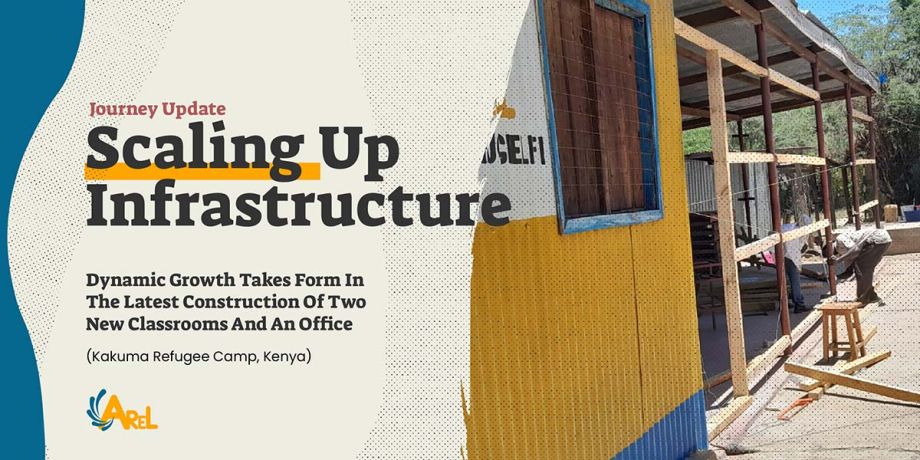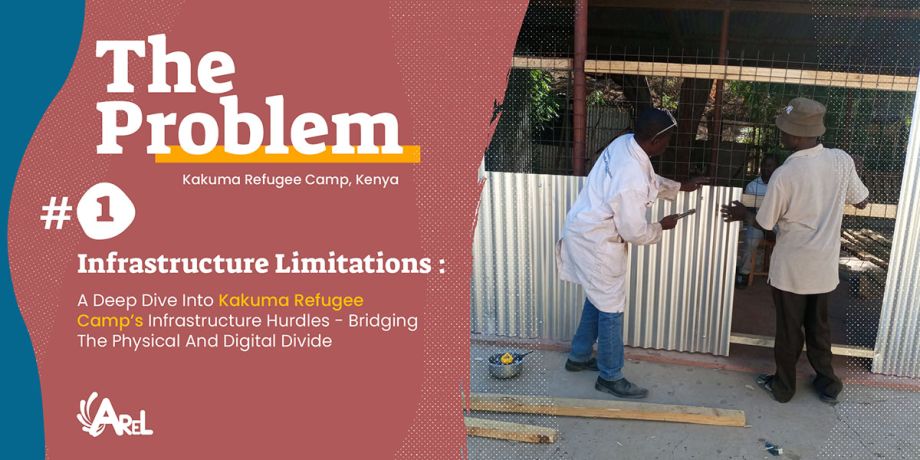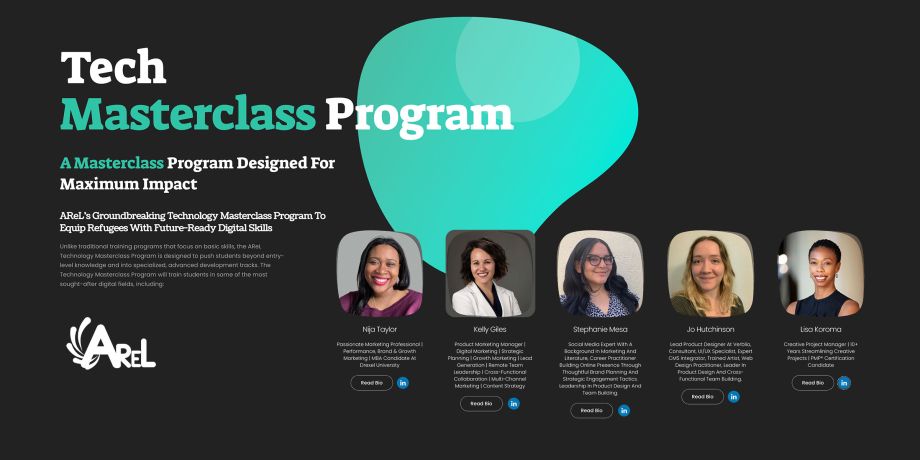[Journey Update] AReL Scaling Up In Kakuma Refugee Camp (Kenya) - Construction Of Two New Classrooms And An Office
Greetings to our cherished community! We are delighted to bring some exciting news from the heart of Kakuma refugee camp. Kakuma has become a beacon of hope and transformation for many. As Action for Refugee Life (AReL) continues its mission, we've been met with an opportunity that promises to magnify our impact: a green light from Jenga Maisha Company Limited, granting us the privilege to expand our infrastructure.
Video: An up-close look at the construction expansion of two classrooms and an office at the AReL center located in Kakuma Refugee Camp, Turkana County, Kenya (pre-build, mid-build, and completion).
Building Today for Tomorrow's Leaders
With the kind permission of Jenga Maisha Company Limited, we are expanding our horizons, quite literally. As we witness an increasing demand for education and the endless enthusiasm of the Kakuma community, it becomes clear that scaling up our infrastructure is the next pivotal step. In response, we've begun the construction of two additional classrooms, creating spaces that inspire learning and foster community.
This expansion is more than just a response to demand—it symbolizes AReL's promise to remain adaptable and responsive to the needs of our community. As we grow, so does our commitment to ensuring that every refugee in Kakuma has access to quality education within conducive environments.
The Operational Anchor: Proximity Powers Agility in AReL's Mission
In conjunction with developing new classrooms, we are actively renovating a designated space for administrative purposes. This dedicated office will efficiently handle the day-to-day operational needs, ensuring that classroom spaces remain exclusively for instruction and learning. By addressing administrative matters in this separate space, we optimize our valuable classroom spaces, ensuring they stay dedicated venues for knowledge and growth. This careful segregation underlines our commitment to offering an unobstructed learning environment for our students.
Our on-campus presence is a distinguishing strength for AReL. Being close to our students fosters a sense of community and grants us unparalleled agility in addressing real-time challenges. Whether it's swiftly rectifying internet connectivity glitches, ensuring a consistent power supply, or maintaining the security and integrity of our learning center, our proximity allows us to act promptly and efficiently. By embedding on-the-ground operational support within the heart of the camp, we ensure a seamless learning experience for our students, showcasing our unwavering commitment to their growth and well-being.
Reflecting on Our Journey
Every milestone reached is a testament to our adaptability and relentless drive, from the inception of our in-class training programs to the strides we've made with our Digital Marketing Training Courses powered with Hubspot curriculum. With our expanded facilities, we're set to accommodate our growth, ensuring that our impact scales alongside our ambitions.
Be Part of Our Story - Invitation to Growth
While our infrastructure physically grows, the spirit and mission of AReL remain anchored in community and collaboration - it's the community's belief and support that genuinely builds AReL. Your unwavering support has been instrumental in every step forward. As we expand our footprint, we hope you'll continue to walk alongside us.
Your role in this journey has been invaluable to all our partners, supporters, and believers. Whether you're a company keen on partnership, a dedicated volunteer, or a generous benefactor, each of you plays a role in sculpting the future of Kakuma's refugees. Whether you are a company looking to collaborate, an individual wanting to volunteer, or someone willing to offer financial support, your contribution can make waves of change.
We stand firm in our belief that education is the cornerstone of progress. With our expanding facilities and courses, AReL ensures that the young refugees in Kakuma have the tools to shape their futures.
Thank you for standing with us, believing in our vision, and being an integral part of the AReL family. Together, we are not just constructing buildings but also architecting dreams.
Visit our Partners page to discover ways you can get involved.



